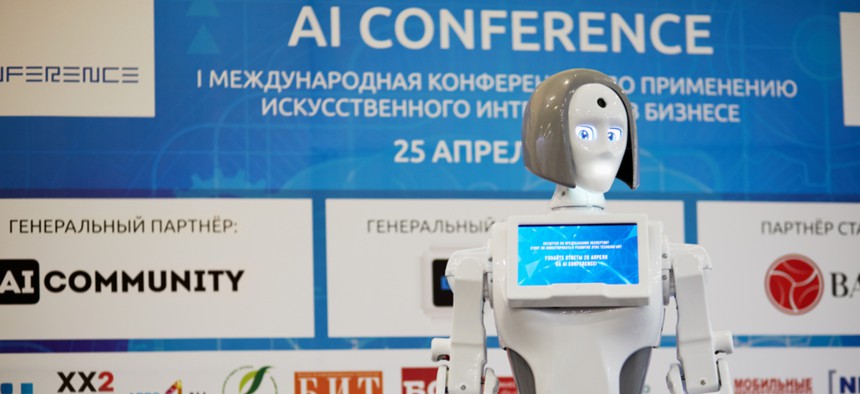Russia: Expect a National AI Roadmap by Midyear

Pavel L Photo and Video/Shutterstock.com
Moscow is starting to put financial and logistical muscle behind its efforts to develop artificial intelligence.
Russia is adding details, deadlines, and dedicated funding to its draft national roadmap for the development of artificial intelligence technologies, and expects to release the final version in mid-year.
The roadmap “provides for the creation of a list of projects that will help identify and remove barriers to the development of end-to-end technologies, as well as predict the market demand for artificial intelligence in the country,” as state media put it in October. Moreover, the new document will form a cornerstone of the larger Digital Technologies national program.
Already, it appears that Moscow is increasing the amount of money it intends to devote to AI R&D. In late 2017, the government was planning to spend about $419 million (28 billion rubles) by 2020. But last October brought a new version of the 2019-21 plan for Digital Technologies that appears to call for spending nearly twice that much: $287 million for leading research centers and start-ups, $145 million to develop products, services and platforms, and $287 million for technology “at the extreme degree of readiness.”
Russia’s interest in AI seems to have swung into a higher gear after September 2017, when President Vladimir Putin said that artificial intelligence is “humanity’s future” and that the country that masters it will “get to rule the world.” In March 2018, government officials held a conference to encourage cooperation on AI between private companies and organizations and various government agencies. Organized by the Ministry of Defense, Russian Academy of Sciences, and the Ministry of Education and Science, the event saw Defense Minister Shoigu call for public-private cooperation. Then-Defense Minister Borisov added that AI would help Russia prevail in cyberspace and win in information wars.
The conference produced a draft AI roadmap, a list of suggested public-private partnerships and notes about the key R&D steps needed to make them happen. The suggestions include ideas such as establishing an AI-and-Big Data consortium; creating a state system for AI training and education; monitoring AI developments globally; establishing National Artificial Intelligence Center; and other proposals.
The new Digital Technologies plan seems to originate from the civilian part of government—its authors include such institutions as the Institute for System Programming of the Russian Academy of Sciences, the Speech Technology Center, Moscow Institute of Physics and Technology, ITMO University, Russian Venture Company, Rosatom, and MTC, Russia’s largest mobile operator.
While the Defense Ministry was one of the key facilitators of the March 2018 draft, it is not publicly named in the newly announced roadmap plan. However, two key organizations are involved both in the earlier March 2018 and the current efforts—Advanced Research Foundation (Фонд перспективных исследований, or Russia’s DARPA equivalent institution), as well as the Russian Academy of Sciences.
What is clear is that Russia is finally starting to put financial and logistical muscle behind its national AI development plans. One way or another, 2019 is expected to produce tangible results, by giving concrete guidance to domestic AI development efforts. It’s hard to see how that could not come to pass when Russia’s president announces that to him, the most interesting areas of national research are AI and genetics. The nation’s science and technology and research and development organization have gotten the message.





